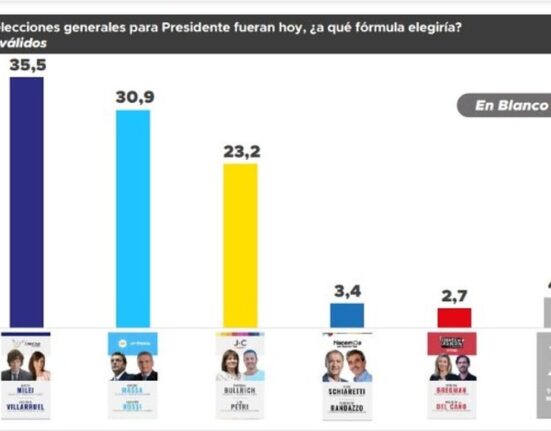Carlos Galván reports on a bold initiative stirring debate among security officials and federal law enforcement officers. The proposed Decree of Necessity and Urgency, set to be signed by the President upon his return from an international tour next week, aims to overhaul the Organic Law of the Federal Police. This move has sparked controversy as it includes contentious provisions such as the authority to detain individuals for up to 10 hours if they fail to prove their identity and conduct searches without judicial approval.
The urgency surrounding this decree is heightened by the impending expiration of executive powers delegated through last year’s congressional law, which will lapse on July 8th. Javier Milei faces a deadline to declare a “state of emergency” within the Federal Police, allowing for direct contracts and force restructuring without tender processes.
In defense of this reform, supporters argue that updates are essential due to evolving crime threats and advancements since the current police legislation dates back to 1958. The proposal emphasizes modernizing the force to better tackle complex federal crimes, aligning with international models like the FBI and Brazil’s Federal Police.
However, critics raise constitutional concerns over granting such powers via decree instead of parliamentary deliberation. Fernando Carbajal, an experienced former judge now serving as a national deputy, condemns the potential infringement on citizens’ rights under the guise of police reorganization. He warns against reverting to outdated practices like detention for identity verification purposes.
Another legal expert echoes these sentiments, highlighting potential legal challenges should the decree be enacted hastily. While proponents argue that existing laws already permit brief detentions in specific circumstances, opponents stress that any expansions must undergo rigorous judicial scrutiny rather than unilateral executive action.
Expert insight from Carlos Ñamandu offers a different perspective. As a seasoned specialist in combating transnational organized crime and cybercrime, he defends certain aspects of the reform as reinforcing existing legal frameworks with added safeguards for detainees’ rights.
The contentious issue extends beyond detention rules into search protocols granted under the proposed decree. Concerns arise around empowering federal officers to conduct personal searches without prior judicial approval based on subjective suspicions—a departure from standard legal procedures requiring oversight and due process.
While some experts caution against diluting judicial oversight in law enforcement operations, others view these changes as necessary adaptations enabling swift responses in urgent situations where immediate action is imperative—such as intercepting criminal activities before they escalate.
Furthermore, granting Federal Police expanded digital surveillance capabilities raises ethical considerations regarding privacy intrusion versus crime prevention strategies online. Despite reservations about potential misuse or overreach in monitoring public digital spaces without prior judicial consent,
Leandro Halperin emphasizes that any alterations warrant thorough parliamentary deliberations rather than hasty executive orders due to their wide-ranging implications for policing practices and civil liberties protection.









Leave feedback about this